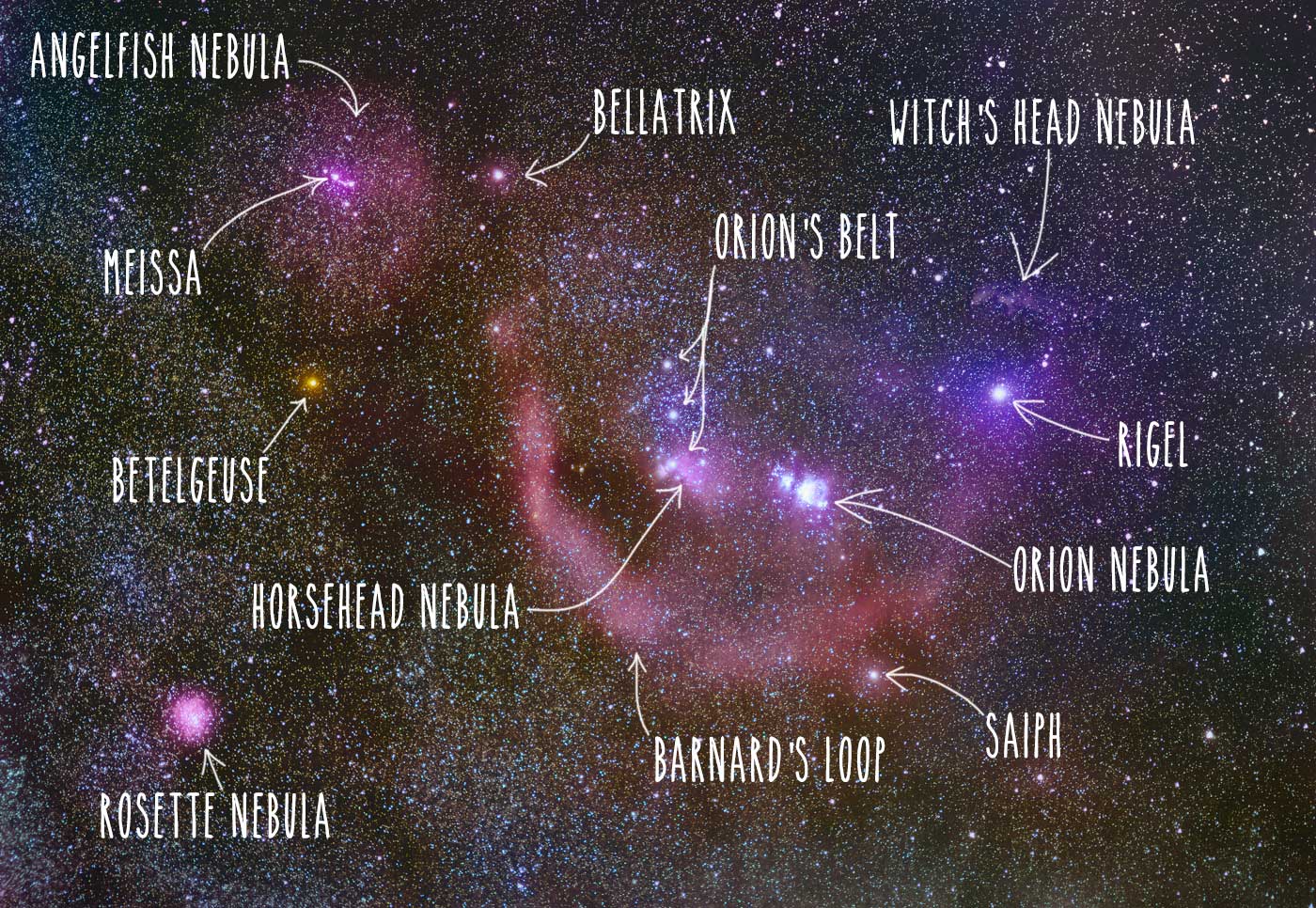 Orion and the Running Man
Orion and the Running ManExplanation: Few cosmic vistas excite the imagination like The Great Nebula in Orion. Visible as a faint celestial smudge to the naked-eye, the nearest large star-forming region sprawls across this sharp telescopic image, recorded on a cold January night in dark skies from West Virginia, planet Earth. Also known as M42, the Orion Nebula's glowing gas surrounds hot, young stars. About 40 light-years across, it lies at the edge of an immense interstellar molecular cloud only 1,500 light-years away within the same spiral arm of our Milky Way galaxy as the Sun. Along with dusty bluish reflection nebula NGC 1977 and friends near the top of the frame, the eye-catching nebulae represent only a small fraction of our galactic neighborhood's wealth of star-forming material. Within the well-studied stellar nursery, astronomers have also identified what appear to be numerous infant solar systems.
| << Previous APOD | This Day in APOD | Next APOD >> |
